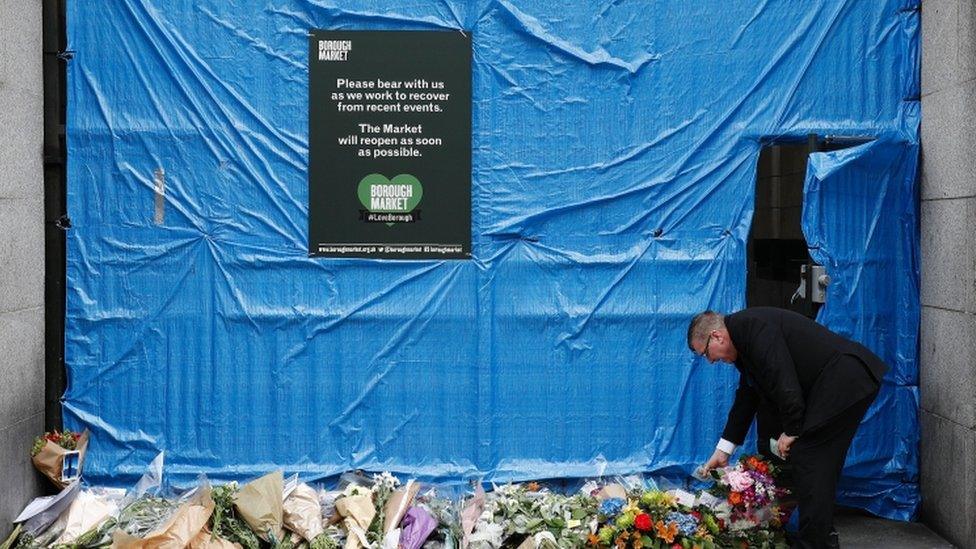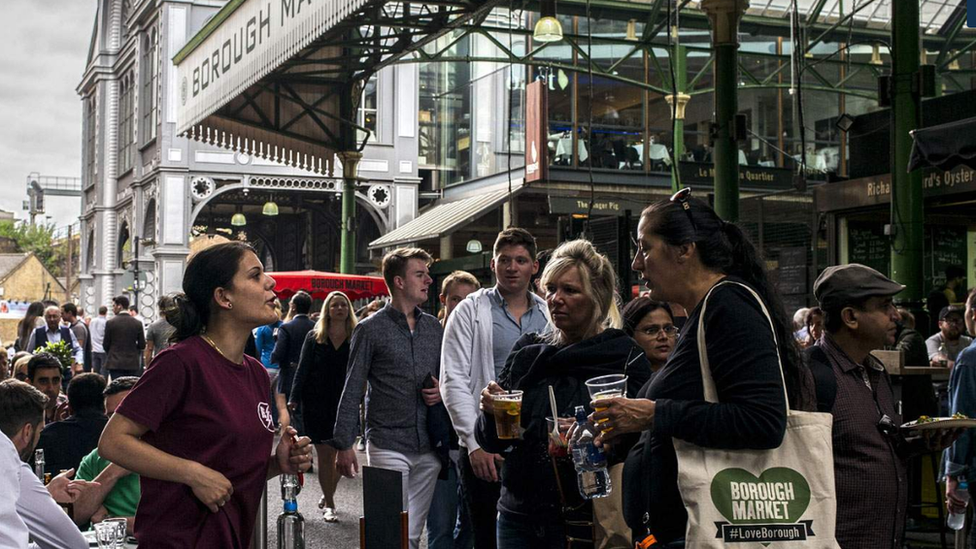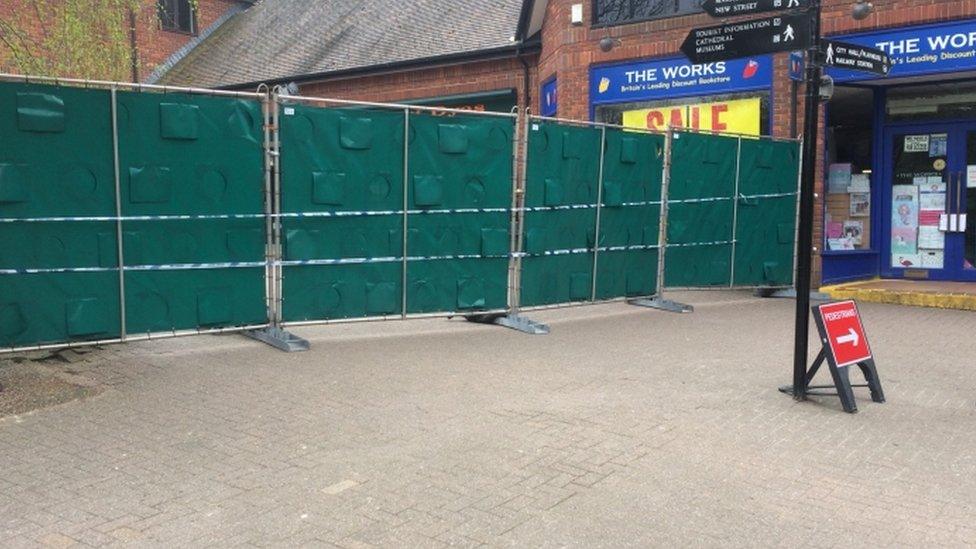Terror attacks: Closing legal loophole will give firms insurance cover
- Published

Borough Market: Famous food traders were hit hard by the London Bridge attack in 2017
Firms hit by financial losses after a terror attack are to benefit from a legal loophole being shut.
Businesses will now be able to get insurance even if they have not been damaged by a bomb.
That means shops and businesses forcibly closed after an attack will be able to reclaim potentially big losses.
John Glen, Economic Secretary to the Treasury, said the changes would now mean that businesses have "peace of mind".
The cover comes from a government-guaranteed scheme that pays out to insurers - and therefore their customers - in the event of terrorism.
The scheme, known as Pool Re, was created during the Northern Ireland Troubles to protect insurers from the risk of a catastrophic scale of terrorism-related claims that they ultimately could not meet.
Pool Re's huge fund, external is financed by insurance firms but it is also underpinned by the Treasury.
That means member insurance companies can offer all businesses cover against terrorism.
Since its birth, Pool Re has paid out more than £1.3bn in today's prices for losses suffered in 16 major terrorism incidents.
But pay-outs have never covered losses suffered by shops and businesses that are indirectly caught up in an incident because they have been forced to close.
Businesses surrounding the scene of the London Bridge attack in June 2017, including the iconic Borough Market, were closed for 11 days because they were inside a major police cordon.
More than 100 merchants lost £1.5m as artisan traders were locked out of their premises. Food rotted and the popular restaurants surrounding the market had their shutters down at one of the busiest times of the year.

Reopened: Borough has worked hard to promote itself after the loss of custom
London's defiant market: How Borough Market got back to business
Neil Coyle MP, whose constituency includes Borough Market, led the parliamentary campaign to extend Pool Re - and said the legal change would benefit businesses everywhere.
"It wasn't just the market that was affected - these are businesses that were also wholesalers supplying customers and restaurants. The losses were huge because they could not get into their own buildings.
"Only two and a half per cent of businesses have terrorism cover - so there needs to be a big campaign now to get them to take this seriously."
Similarly, traders in Salisbury were shut for weeks last year as police and scientists investigated the nerve agent attack.

Police closed off part of Salisbury town centre after the Novichok attack in 2018
Business leaders lobbied ministers to change the law governing Pool Re to ensure the scheme could be extended to cover terrorism-related financial losses, whether or not a premises has been physically damaged.
That change became law on Tuesday when it received Royal Assent. John Glen said on Twitter that the government had responded to concerns raised by business.
And Julian Enoizi, Pool Re's chief executive, urged businesses throughout the country to think hard about getting themselves covered.
He said: "We are already collaborating with business federations, local authorities, brokers and our member insurers, all of whom need to have open conversations with their customers about just how much may depend on having this cover if the worst should happen."